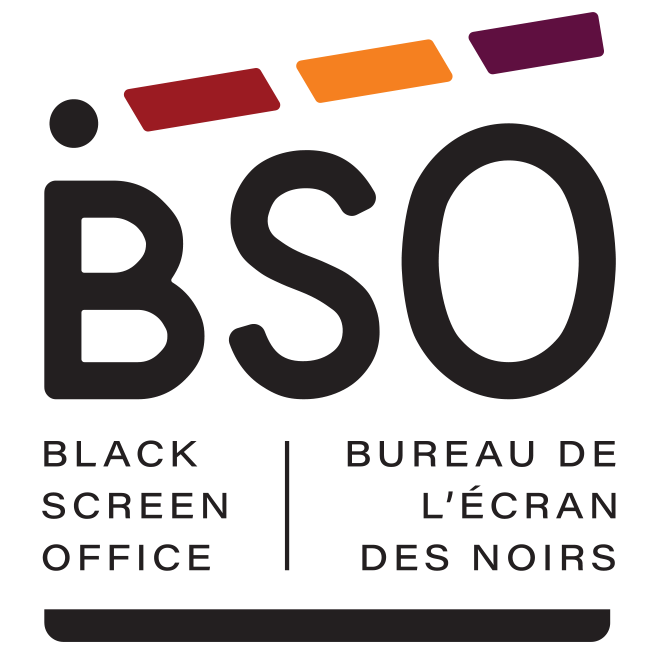The Honourable Steven Guilbeault
Minister of Canadian Heritage
15 Eddy Street, 12th Floor
Gatineau, Quebec
K1A 0M5
Dear Minister Guilbeault,
As Black Canadian professionals in the screen-based media sector, from coast to coast to coast, we are writing to you to request a meeting to discuss how we can work together to eliminate the unacknowledged anti-Black racism in the Canadian screen-based industries. We believe unfair policies and practices that disenfranchise and discriminate against Black Canadian creators and producers are embedded in the film and TV industry. We want to bring this to your attention and impress on you that much change is needed.
Sparked by the global outrage and protests over the murders of George Floyd, Breonna Taylor and Ahmaud Aubery in the US, and amplified in Canada by the off-duty police assault of Dafonte Miller, and death of Regis Korchinski-Paquet, as well as the devastating impact of COVID-19 on Black and Brown communities, Canada must reckon with its own history of anti-Black racism. As part of this reckoning, Canada’s cultural and screen-based industries must remove its systemically racist barriers to access and achievement, and embrace real transformative change.
As the Canadian Human Rights Commission has acknowledged, “anti-Black racism is pervasive in Canada. In fact, the belief that there is little to no racism in Canada is in itself a barrier to addressing it …“ The refusal by many Canadians to acknowledge and therefore address these barriers has had a profound effect on our professional experiences as Black creators and producers. The Commission goes on to say: “The roots of anti-Black racism and systemic discrimination in Canada run deep. They are historically embedded in our society, in our culture, in our laws and in our attitudes. They are built into our institutions and perpetuate the social and economic disparities that exist in everything from education, to healthcare, to housing and employment.”
The history of anti-Black racism in Canada is unique and extensive, yet our particular history has been glossed over and largely erased. Many Canadians are unaware that over 200 years of slavery has been woven into the fabric of this nation and significantly affected the quality of life for Black people in this country. Poverty rates in Black Canadian families are 8 to 24% points higher than the national average. Black women in Ontario earn 57 cents for every dollar a non-racialized man earns, and 44% of Black children in Toronto live in poverty. The global problem of racism can only be solved through an active commitment to eradicating anti-Blackness, an issue that has resulted in the worst outcomes for Black Canadians.
This is not to minimize the racism experienced by other groups or to negate the value of initiatives directed to inclusion, diversity and BIPOC, but a distinction needs to be made because of the complex, multi-generational historic and contemporary experiences and stories of Black Canadians.
Black professionals want to work in the screen-based media sector at all levels, “above-the-line” and “below-the-line”, including producing, writing, directing, production, legal, technical and business affairs, and crews that provide a whole array of services. Yet the gatekeepers, decision makers, executives, unions and boards of directors heading screen-based organizations and institutions have virtually no Black representation. Just as important strides have been made in the US, UK and Australian industries, we too need Black Canadian gatekeepers from our community who are committed to developing Black Canadian talent. We should not have to move to the US to make a basic living.
We know that together we can move mountains. gender parity became top priority when Prime Minister Trudeau declared it so. When CBC mandated that 50% of all directors be female, they remarkably surpassed their goal and reached 75% last year. But mandated gender diversity is of no specific benefit to Black women. For example, the recent commissioning of 14 films by CBC Films, formerly the “Breaking Barriers” fund, resulted in the selection of 13 White female directors and one South Asian. A similar situation occurred with Telefilm’s recent “Talent to Watch” program, wherein only two of the 40 directors selected were Black. This is what diversity looks like in Canada when Black filmmakers are not specifically targeted, and this is not acceptable.
Most recently, in a statement spurred by the recent global civil unrest acknowledging anti-Black racism, the CBC said “that by 2021–22, it wants half of all new hires for executive and senior management positions to be Indigenous people, visible minorities, or people with disabilities. It also plans to double retention and promotion rates for people from these three groups. (The Canadian Press, June 23, 2020). Ironically, a commitment to recruiting and retaining Black Canadians was not mentioned in this communication. We have seen time and time again that when Black people fall under the umbrella of “visible minority” or BIPOC, the assumption is that there will be equal opportunity for everyone within the group, but that is simply not the case. Under the catch all label of BIPOC, Black people get the least attention and resources, and the worst outcomes of all who are identified within this group.
Overall, few stories by and about Black Canadians ever get made. We can cite fewer than five examples of a major broadcaster greenlighting a series made by and about Black Canadians. In the 109 year history of our industry, this is an abysmal showing by any measure. Further, when series about Black Canadians are made, it is often at a financial disadvantage to the producers. At every level, systems are in place to under-finance and under-support our projects. We believe this is largely because the systemically racist policies governing our industry leaves Black writers, showrunners, directors and producers unable to make a decent living in this country.
We are seeking to secure committed funding for Black producers and creatives. Our collective experience has shown that “the level playing field” is not level. Without committed funds there will be no significant changes in outcomes we all agree are valuable and important to our multicultural society. We need to look at the metrics that trigger the funding for Black-led projects in Canada in agencies such as Telefilm, CMF/FMC, CAVCO, CBC/SRC, NFB/ONF and other relevant funding bodies.
We applaud the federal government’s initiative to create the Indigenous Screen Office, where Indigenous people now have special access to support for the development, production and marketing of Indigenous screen content and storytelling in Canada. We would like to propose the implementation of a Canadian Black Screen Office with a similar mandate, including identifying the structures and practices within the screen-based industries that negatively impact Black Canadians and impede our success. Office personnel would lobby for policy changes and make recommendations for targeted funding investments to address and eradicate these deeply hurtful and unfair systems. The Office would have permanent staff from the Black community and permanent funding.
We strongly request that the Canadian government invest in Black Canadians in the same way it has addressed gender parity and support for Indigenous screen content. Left unattended, these problems will not correct themselves.
We would like to respectfully request a meeting with you and your staff to discuss these issues within the next two weeks.
Kind regards,
Jennifer Holness – President, Writer Producer, Hungry Eyes Media
Damon D’Oliveira – Producer – Conquering Lion Pictures
Joan Jenkinson – Media Executive, Producer – Artemis Pictures
Floyd Kane – Writer, Producer, Freddie Films
Tonya Williams – Founder- Exec Director – Reelworld Film Festival
Maya Annik Bedward – Director, Producer, Third Culture Media
Sudz Sutherland – Vice-President, Writer, Director, Hungry Eyes Media
Charles Officer – Director, Producer, Cane Sugar Film
Clement Virgo – Director, Writer, Producer, Conquering Lion Pictures


